EVENTS
Igba Nkwu Nwanyi: All You Need to Know About the Igbo Traditional Marriage, Using Uturu as a Case Study
Published
7 months agoon
By
Ekwutos Blog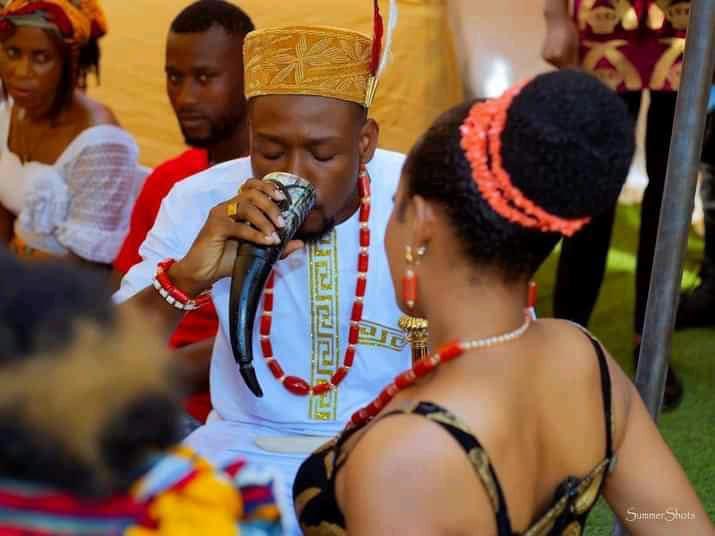
Unfortunately, Igbo tradition doesn’t recognize the modern kind of proposal where the man gets down on one knee and proposes to his girlfriend.
Marriage is very important in Igbo culture, and the traditional rites attached to the union aren’t taken lightly by the families involved.
Traditional Igbo marriages are deemed very festive, colorful, and are divided into four main parts:
1. Marriage inquiry known as ‘Iku aka’ or ‘Iju ese’
2. Seeking consent from the bride-to-be’s extended family, known traditionally as ‘Umunna’
3. Bride price negotiation
4. Wine-carrying ceremony by the bride, known as ‘Igba Nkwu Nwanyi’
All these must be completed, and the bride’s family must be satisfied before the groom can take his new wife home.
1. Marriage Inquiry Known as ‘Iku Aka’ or ‘Iju Ese’
Tradition doesn’t recognize the modern kind of proposal where the man gets down on one knee and proposes to his girlfriend. The first step of the Igbo traditional wedding rites is the groom visiting the bride’s immediate family, accompanied by his father or the eldest member of his family if his father is deceased. Usually, they are meant to show up empty-handed because ‘Iku aka’ or ‘Iju ese’ simply means ‘coming to knock or inquire,’ but the groom and his family are free to take some hot drinks and kola nuts as a gesture of goodwill.
The groom’s father does the talking; he introduces himself to the bride’s parents or guardian, explains the purpose of his visit, and officially announces his son’s interest in marrying their daughter. The bride-to-be is then called out by her parents and asked if she knows her suitor and would like to marry him. Her response determines if they will proceed to inform the extended family and begin the bride price negotiation.
2. Seeking Consent from the Bride-to-Be’s Extended Family, Known Traditionally as ‘Umunna’
After the first visit, the bride’s family begins an investigation of the groom’s family. They check their background and history (hereditary illnesses, bad behaviors, divorce, fertility, etc.). This investigation determines the progress of the next meeting between both families, as the bride’s family will decide if the groom-to-be is suitable to take care of their daughter and future children. It is also assumed that the groom’s family must have conducted a similar investigation prior to the first visit.
The next meeting will be between the groom’s family (which can include up to 20 people) and the bride’s extended family, known as ‘Umunna’. This meeting is important because the groom’s family must restate their interest in marrying from their family. The groom first needs to get the consent of the bride’s extended family and then the final consent from the bride. Dates for the traditional wedding will be set, and a bride price list will be sent out. In Igboland, tradition dictates that the groom bring a few gifts (such as kola nuts, palm wine, beer, soft drinks, tobacco, snuff, and a goat). These will be shared between the groom’s and the bride’s families.
3. Bride Price Negotiation and Payment, Known as ‘Ime Ego’
After the second visit and once consent has been given by the bride’s extended family, the groom’s family can proceed with the bride price negotiation and payment, known traditionally as ‘Ime ego’. The groom’s family asks for the engagement gifts list, which varies slightly from place to place in Igboland.
The money paid for the bride price is significantly small and can be as low as N30; it isn’t an indication of the bride’s worth. The extra gifts make up the larger part of the bride price. The groom’s family then presents all they’ve bought to the bride’s family on an agreed date or on the day of the wine-carrying ceremony.
‘Ime ego’ can be a hectic process between both families, with a lot of begging from the groom’s side and a lot of bragging from the bride’s side. The bride’s family lists their daughter’s accomplishments and what the groom-to-be will gain by marrying her. There will be a lot of back and forth between both families until a set amount is reached.
4. Wine-Carrying Ceremony by the Bride, Known as ‘Igba Nkwu Nwanyi’, and ‘Idu Ụlọ’
This is the final rite done by the groom’s family. After the date for the official wine carrying has been set, the ceremony is held at the bride’s home. Her family prepares a large feast (depending on their means) for the groom’s family and invited guests. They may also hire a live band and traditional dancers to make the ceremony interesting. Usually, the bride-to-be is dressed in traditional Igbo wedding attire, which includes a blouse, a double wrapper, a red coral bead necklace, and a large head tie known as ‘Ichafu’ or a bead around her head.
The groom is expected to be accompanied by a larger party this time (including friends) and bring along the bride price list. He must present the list along with the required gifts to the Umunna before the ceremony begins.
The highlight of ‘Igba Nkwu Nwanyi’ is when the bride publicly identifies the man she wants to marry. The bride’s father or eldest uncle (if her father is deceased) traditionally prays for the bride, blessing her future marriage. He then gives her a cup of palm wine (usually placed in a gourd) to find the man she intends to marry. The bride, along with her maidens, searches for her groom in the crowd, as other men and the groom’s friends beckon her to give them her wine. Once she finds her groom, she offers him the drink, kneeling down. If he takes a sip, it signifies to the crowd that he is her husband; acceptance means they are officially married. The groom and bride then dance to meet her parents, who pronounce blessings on them. The merriment begins, and the couple receives gifts from friends and family.
‘Idu Ụlọ’ comes immediately after ‘Igba Nkwu’. At this stage, the bride visits the groom’s home for the first time, accompanied by a maiden or her unmarried sister to keep her company. Before she begins her journey, the bride’s family gifts her items she’ll need to start her new home, including cooking utensils, bed sheets, suitcases, boxes, a sewing machine, a bed, pillowcases, plates, clothes, and other essential items. The bride’s sister or family returns home after a few days to give feedback to her family.
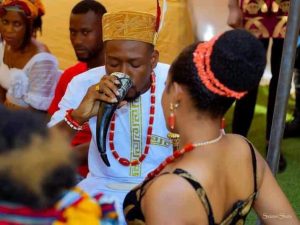
You may like
EVENTS
POWA PRESIDENT PROMISES BETTER WELFARE FOR POLICE WIDOWS, ORPHANS Slates Visits to Imo, Abia State Commands
Published
2 hours agoon
January 15, 2025By
Ekwutos Blog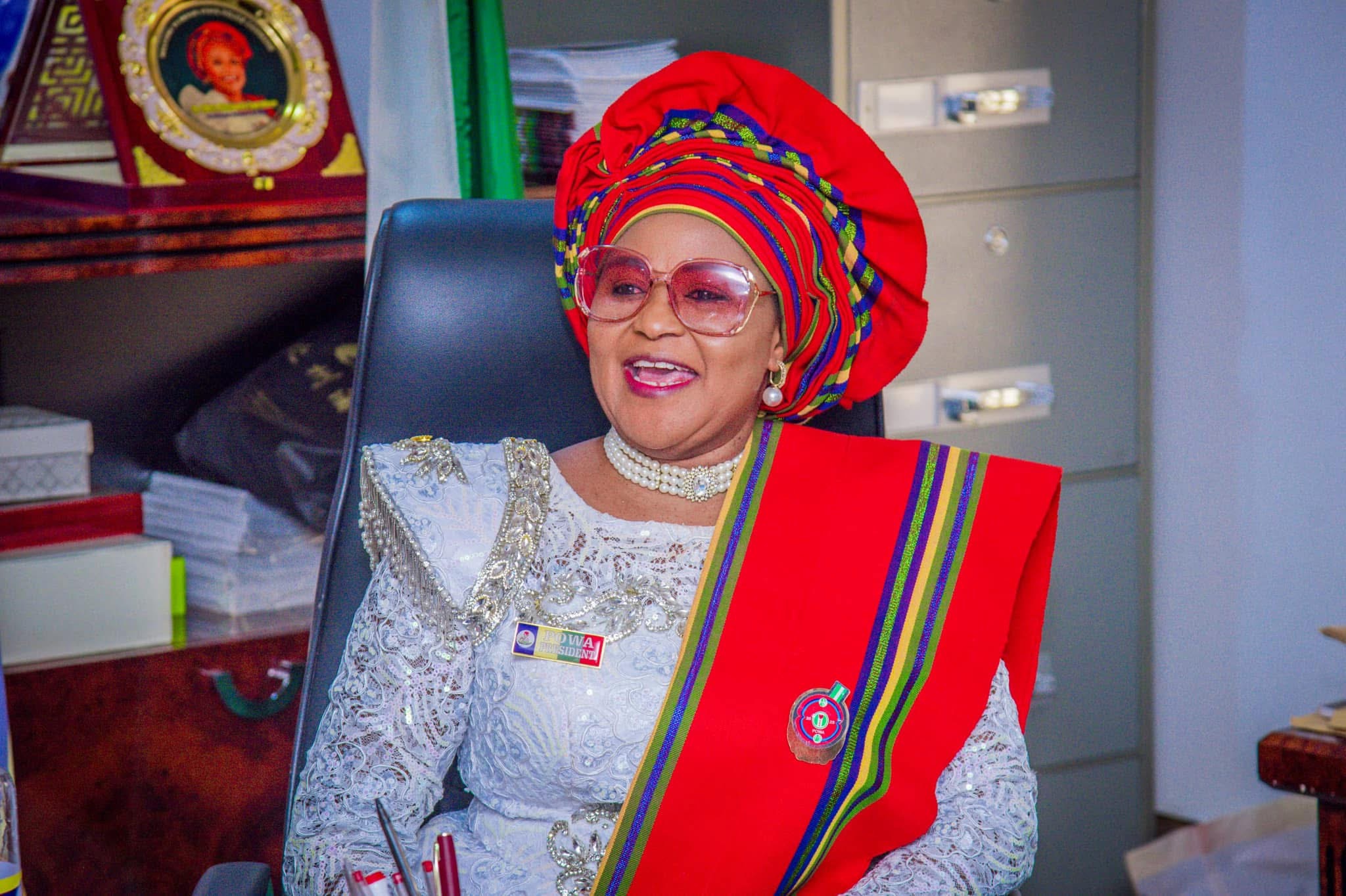
POWA PRESIDENT PROMISES BETTER WELFARE FOR POLICE WIDOWS, ORPHANS
Slates Visits to Imo, Abia State Commands
The President of the Police Officers’ Wives Association (POWA), Dr. (Mrs.) Elizabeth Egbetokun, has reiterated the commitment of her leadership to improving the welfare of police widows and orphans in 2025. She made this statement today, Wednesday, 15th January 2025, during a strategic meeting with senior officers of the Police Force Headquarters at the POWA Secretariat in Abuja, while announcing plans to embark on familiarization tours to various states in the country commencing with Imo and Abia State Police Commands on Thursday, 16th January 2025.
She emphasized the Association’s dedication to providing sustainable support for the families of fallen officers and indigent children of police personnel across the six geopolitical zones of the country. She also outlined plans to expand existing welfare initiatives and introduce new empowerment programs aimed at alleviating the challenges faced by widows and orphans within the police community.
Highlighting the importance of collaboration, the POWA President called for stronger ties between POWA, the Nigeria Police Force, and other stakeholders to address the welfare-related challenges of police families nationwide.
As part of her familiarization tour to Imo and Abia States, Mrs. Egbetokun will also launch welfare initiatives aimed at improving the living conditions of police wives and widows in these states. The visit will feature interactions with local POWA members and beneficiaries of the association’s programs.
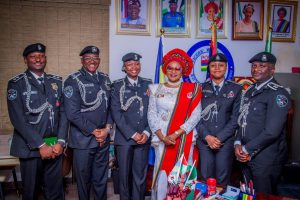
ACP OLUMUYIWA ADEJOBI, mnipr, mipra. fCAI,
FORCE PUBLIC RELATIONS OFFICER,
FORCE HEADQUARTERS,
ABUJA
15TH JANUARY, 2025
EVENTS
Police invade PDP headquarters as factional secretaries set to resume
Published
2 days agoon
January 13, 2025By
Ekwutos Blog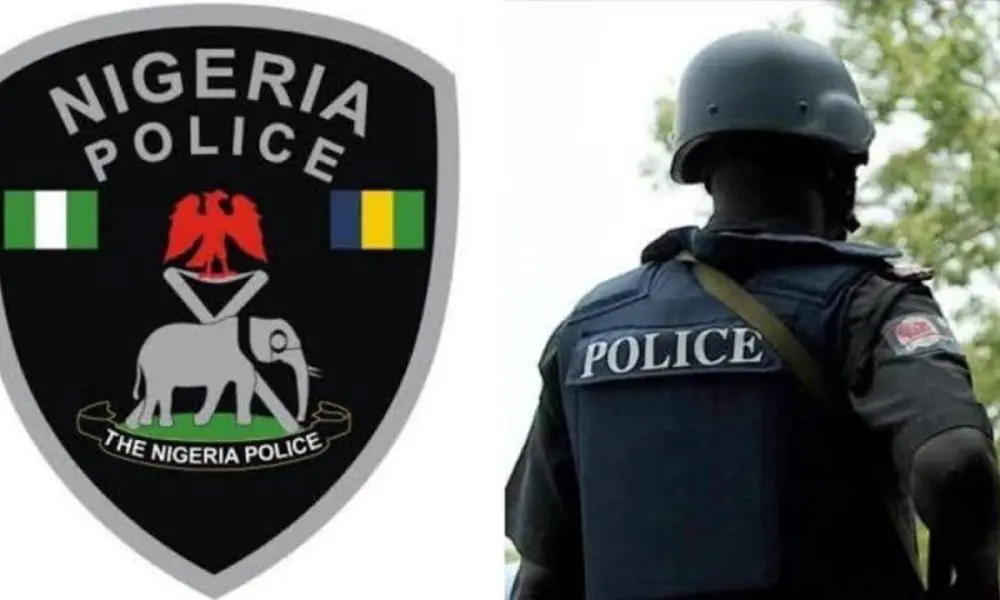
The Nigeria police on Monday stormed the national headquarters of the Peoples Democratic Party, PDP, as both the embattled National Secretary of the party, Samuel Anyanwu and Ude Okoye, whom the Court of Appeal declared as the authentic National Secretary of the party are set to resume work today.
DAILY POST reports that both Anyanwu and Okoye are laying claim to the office of the national secretary of the PDP.
The ongoing rustle started after Anyanwu contested for the Imo State governorship election, an exercise he lost to the incumbent.
Upon his return to the party, Okoye who held sway while he was away, challenged his right to return to an office he vacated to contest for an election in his state.
The court had ruled in favour of Okoye and last week.
The PDP national working committee had acknowledged Okoye as the legally recognised National Secretary of the party, maintaining that the party has a high regard for the pronouncement of the Court of Appeal.
EVENTS
Court sacks pro-Wike Rivers PDP chairman
Published
2 days agoon
January 13, 2025By
Ekwutos Blog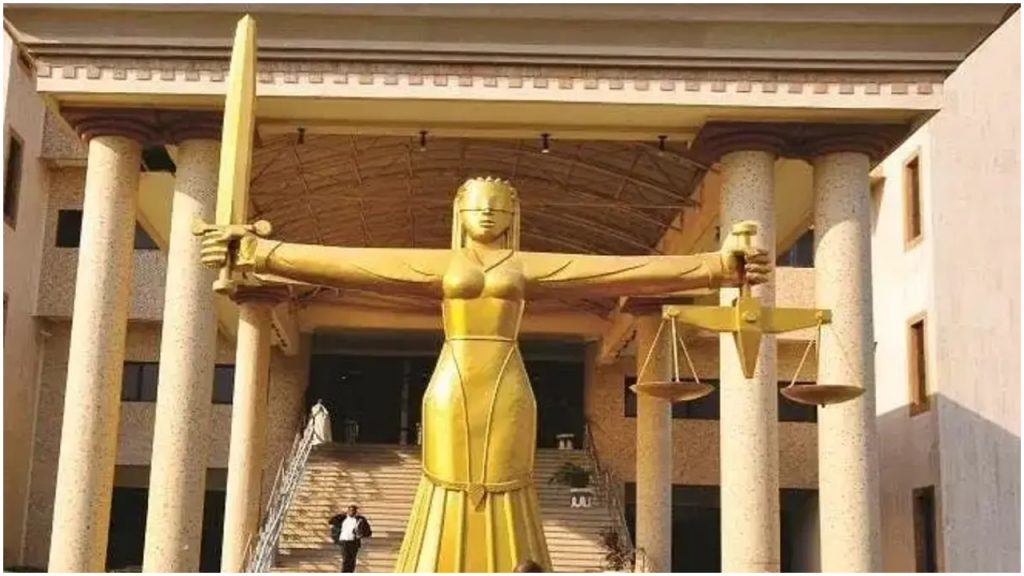
A Rivers State High Court sitting in Port Harcourt on Monday sacked Chukwuemeka Aaron, the chairman of the Peoples Democratic Party, PDP, in the state.
Chukwuemeka is a loyalist of the former governor of the state, Nyesom Wike, who is currently the Minister of the Federal Capital Territory, FCT.
Justice Stephen Jumbo in his ruling nullified the PDP ward, local government and state congresses held in the state in July 2024.
The development is coming barely one month after another High Court nullified the ward, local government and state congresses of the opposition All Progressives Congress, APC, in the state.
The ruling sacked another Wike loyalist, Chief Tony Okocha, as the Rivers State chairman of the APC.
DAILY POST reports that the court’s decision to sack the PDP chairman followed a dispute over the legitimacy of the PDP congresses.
The congresses were conducted by a faction of the party loyal to Wike.
A State High Court presided over by Justice Charles Wali had on July 20, 2024, stopped the PDP from going ahead with the ward, local government and state congresses.

Beijing ‘firmly opposes’ US ban on smart cars with Chinese tech

POWA PRESIDENT PROMISES BETTER WELFARE FOR POLICE WIDOWS, ORPHANS Slates Visits to Imo, Abia State Commands

New Match of the Day presenters announced
Trending
- Politics11 months ago
Nigerian Senate passes Bill seeking the establishment of the South East Development Commission.

 Business11 months ago
Business11 months agoInflation hits record high of 29.90% on naira weakness

 Politics8 months ago
Politics8 months agoBREAKING: Federal Gov’t Offers To Pay Above N60,000, Reaches Agreement With Labour

 SportsNews10 months ago
SportsNews10 months agoOlympic Qualifiers 2024: CAF Confirms Dates For Super Falcons Vs Banyana Banyana

 Politics10 months ago
Politics10 months agoGovernor Hope Uzodinma’s New Cabinet In Imo: The Gainers, The Losers

 Trending3 months ago
Trending3 months agoNYA demands release of ‘abducted’ Imo chairman, preaches good governance
- Business3 months ago
US court acquits Air Peace boss, slams Mayfield $4000 fine
- Entertainment11 months ago
American Singer Beyonce makes history as first Black woman to top country chart

